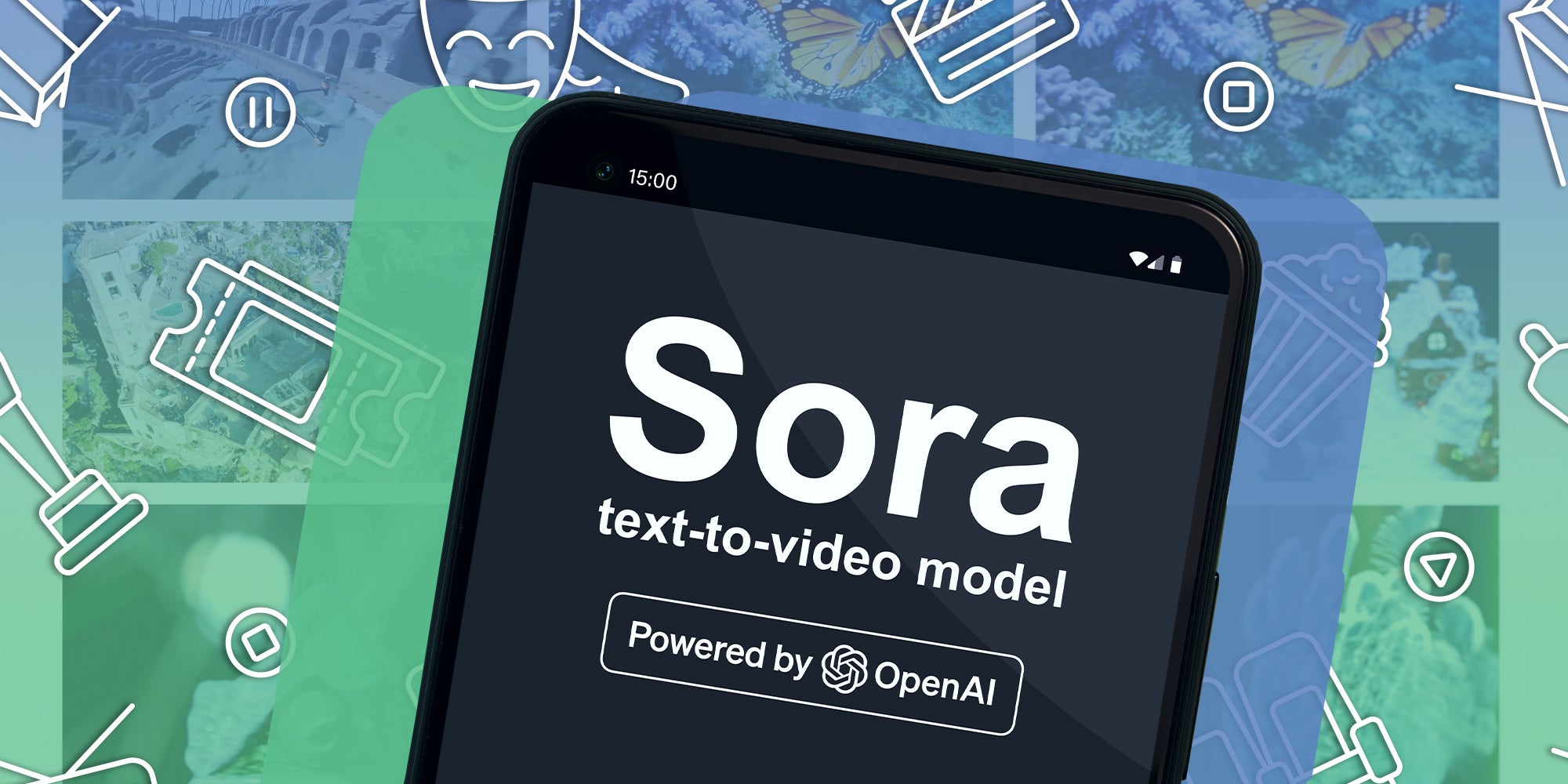
Is AI about to kill the video industry? That was the question creators from all walks of life were asking this week following the release of Sora, a new text-to-video AI model by OpenAI announced on Feb. 15.
As described by OpenAI on its website, the tool can “create realistic and imaginative scenes from text instructions.” It is currently in a beta testing phase. Realistic is the operative word here, as the videos generated are on their way to becoming as fluid and HD as a movie filmed for IMAX.
There isn’t a specific timeline for Sora’s public release. But industry insiders expect it to come sometime this year. And it’s leaving some creators terrified.
Filmmaker Tyler Perry, for instance, put an $800 million film studio expansion on hold following the announcement of the new software.
“I am very, very concerned that in the near future, a lot of jobs are going to be lost,” he told the Hollywood Reporter on Feb. 22. “There’s got to be some sort of regulations in order to protect us. If not, I just don’t see how we survive.”
And if that’s how one of the most powerful men in Hollywood feels, imagine how it feels for the average creator.
“I am now like 99% convinced I’m going to lose my job within the next year,” YouTuber and animator Danno Cal wrote on X. “I can’t sleep.”
In a Feb. 15 video, which has accumulated over 7 million views, tech YouTuber Marques Brownlee also expressed concerns over the hyper-realistic nature of the new Sora AI videos.
“They can and will pass as real videos to people who are not looking for AI-generated videos. Now that is obviously insanely sketchy during an election year in the US,” Brownlee noted.
Specifically, Brownlee speculated that drone pilots and videographers might be out of work soon. That’s because Sora’s AI appears to be particularly good at producing realistic stock footage.
“How long until an entire ad, every single shot, is completely generated with AI? Or what about an entire YouTube video or an entire movie?”
Meanwhile, UK politician Rory Stewart posited in a tweet with over 85,000 views that “our governments will struggle to keep up” with the rapidly changing AI ecosystem.
“This is only the beginning of demonstrating the potential of AI in just one industry – the creative video and film sector,” Stewart said. “Millions of jobs are going to be ‘transformed’ (for which read ‘lost’) very quickly.”
This comes after a year of fraught labor disputes and strikes for people in the creative industries. Specifically, Hollywood writers and actors went on strike in 2023 to protest for higher wages and protections against AI.
There’s also been a growing movement against how companies produce AI models, with creators expressing concerns over AI training off copyrighted materials.
Though the situation is a bit bleak, according to entrepreneur Oliver Gilpin, there is still some hope for creators.
“Creators must defend themselves,” Gilpin explained in a post on X. “A user may be able to create an entertaining video, but not generate content with (scientific) credibility or authority they can trust. The takeaway? Lean into education.”
He continued: “This release of OpenAI makes me think harder about what brands to build: Build authorities. Pure entertainment is going to become a painful game for creators in 5 years.”
Several film workers also told NBC News this week that Sora doesn’t worry them too much. At least, not yet, considering all the technical bugs apparent in its AI-generated video.
“A lot of people are saying Hollywood’s over, Hollywood’s done,” artist Reid Southen told NBC. “I don’t really think that’s the case for a lot of reasons.”
“Production pipelines are too complicated,” Reid continued. “These videos are a little too sloppy with too many issues, especially with temporal consistency and artifacts like extra limbs.”
Is Sora AI changing your life? Email tips@passionfru.it to share your story.




